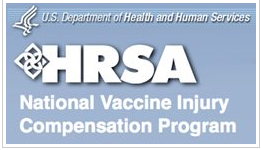
Theresa Wrangham, Executive Director
In September 2014 Centers for Disease Control (CDC) officials informed federal vaccine advisory committees of proposed changes to the form used by doctors and consumers to file vaccine reaction reports with the Vaccine Averse Event Reporting System (VAERS). CDC officials want all vaccine reactions, hospitalizations, injuries and deaths to be filed electronically so vaccine adverse event reporting to VAERS becomes a completely “paperless” process.1
Vaccines can cause mild to severe reactions that leaves vaccine recipients with life-long brain and immune system disorders, disabilities or result in death. The current VAERS reporting form2 allows the public to submit vaccine reaction reports by phone, fax, mail and online. In addition, federal law requires public access to vaccine provider names and requires all vaccine providers to report vaccine-related adverse events listed on the federal Vaccine Injury Table (VIT)3 to VAERS.
Most vaccine reaction reports handwritten
During the meeting of the National Vaccine Advisory, CDC officials reported that about 70 percent of VAERS reports are handwritten and submitted by mail or fax, while 30 percent are online submissions.4 The system receives about 30,0005 reports annually and it is estimated that only between one to 10 percent of vaccine adverse events are reported to VAERS.6, 7, 8 9
Underreporting of vaccine reactions in the U.S. is a widely acknowledged weakness of VAERS.10 It is also known that little has been done by federal health officials to increase vaccine provider reporting to VAERS since the passage of the National Childhood Vaccine Injury Act in 1986, which requires the reporting of vaccine adverse events.
Although the new reporting form proposed by the CDC adds new features while retaining many of current form’s data collection fields, NVIC opposes the CDC’s proposal to eliminate the option of submitting handwritten reports. The proposed shift to a completely “paperless” system is likely to result in even more underreporting of vaccine adverse events and penalize those who are not computer literate. These changes could also hinder the effective monitoring and detection of unusual vaccine adverse events occurring in the general population by health scientists.
Assumptions and omissions muddy data
CDC officials also stated that doctors viewed language in the current form relating vaccine provider identification as “threatening” and inferred liability.11 The new language created by CDC officials12 to address these concerns does more harm than good because it assumes that all Americans are being vaccinated solely by their primary health care provider rather than in pharmacies, grocery and big box stores, senior living facilities, public health clinics, the work place or in school clinics.
Also omitted from the proposed new VAERS form is information about vaccine reactions in siblings, though the Institute of Medicine (IOM) has acknowledged there are individual genetic predisposition and biological and environmental susceptibilities involved in the suffering of vaccine injuries.13 There is no legal requirement to gather sibling information, but given the significant vaccine safety research gaps highlighted by the IOM in a series of vaccine safety reports published between 1991 and 2013, this data is valuable and should be collected by VAERS.
Action: Submit your public comment
Prior to the adoption of the CDC’s proposed changes, the public has the legal right to submit public comments on these changes. Comments received from the public are supposed to be considered in the finalization of the new VAERS form. If you want to make a public comment, you must submit it before January 23, 2015.
NVIC co-founders were responsible for securing vaccine safety informing, recording and reporting provisions in the 1986 law and for the creation of VAERS. NVIC supports unrestricted public access to VAERS, vaccine provider accountability and identification, gathering of information on individual predispositions/susceptibilities by VAERS, and promotion of VAERS awareness by CDC to reduce underreporting. Many of the proposed changes to the VAERS intake form are not in the public’s best interest.
Please make your voice heard. Submit your comments on proposed changes to the VAERS reporting form by following directions outlined in the Federal Register notice.
References
1 Shimabukuro T. CDC Immunization Safety Office. The Vaccine Adverse Event Reporting System (VAERS) form Version 2.0 (proposed). National Vaccine Advisory Committee meeting Sep. 9-10, 2014.
2 Shimabukuro T. CDC Immunization Safety Office. The Vaccine Adverse Event Reporting System (VAERS) form Version 2.0 (proposed). Slide 11 - Current VAERS Form. National Vaccine Advisory Committee meeting Sep. 9-10, 2014.
3 Recording and Reporting Requirements. National Childhood Vaccine Injury Compensation Act of 1986 - 42 U.S.C. §§ 300aa-25. Accessed Dec. 28, 2015.
4 Ibid 1
5 Annual reports to VAERS. About VAERS – Centers for Disease Control. Accessed Dec. 28, 2014
6 Rosenthal S, Chen R. The reporting sensitivities of two passive surveillance systems for vaccine adverse events. Am J Public Health 1995; 85: 1708-9.
7 Braun M. Vaccine adverse event reporting system (VAERS): usefulness and limitations. Johns Hopkins Bloomberg School of Public Health.
8 Food and Drug Administration. Center for Drug Evaluation and Research. The clinical impact of adverse event reporting. MedWatch. October 1996.
9 Lazarus R. Electronic Support for Public Health-Vaccine Adverse Event Reporting System (ESP:VAERS). Harvard Pilgrim Health Care, Inc. 2011.
10 Ibid 5
11 Advisory Commission on Childhood Vaccines transcript Sep. 5. 2014, Physician comments - vaccine provider identification, page 49 Accessed Dec. 28, 2014
12 Ibid 1
13 Evaluating Biological Mechanisms of Adverse Events. Institute of Medicine - Adverse Effects of Vaccines: Evidence and Causality. Washington, DC: The National Academies Press, 2012, pg 82.





.png?width=991&height=280&ext=.png)


Leave a comment
Your email address will not be published. Required fields are marked with an *